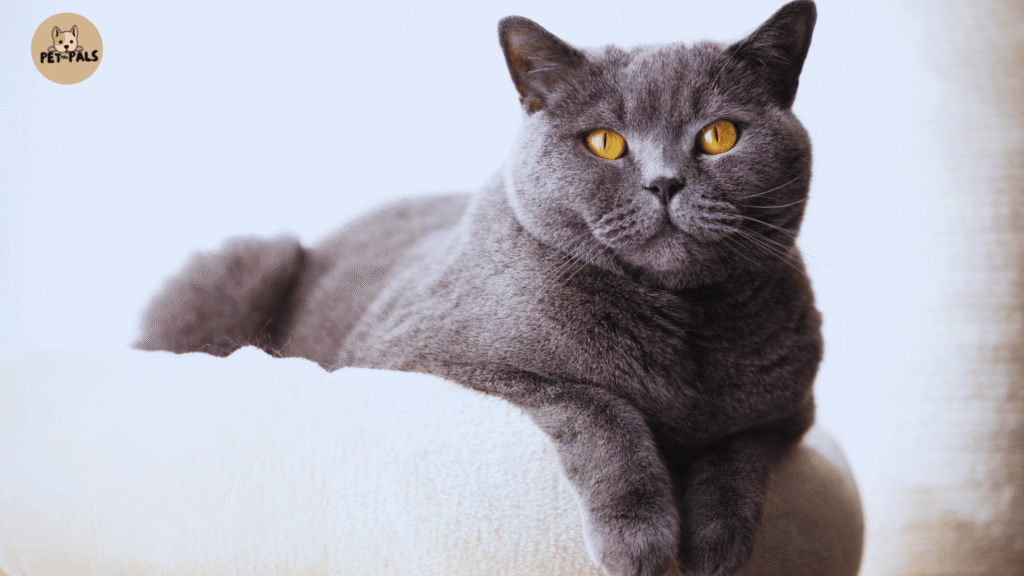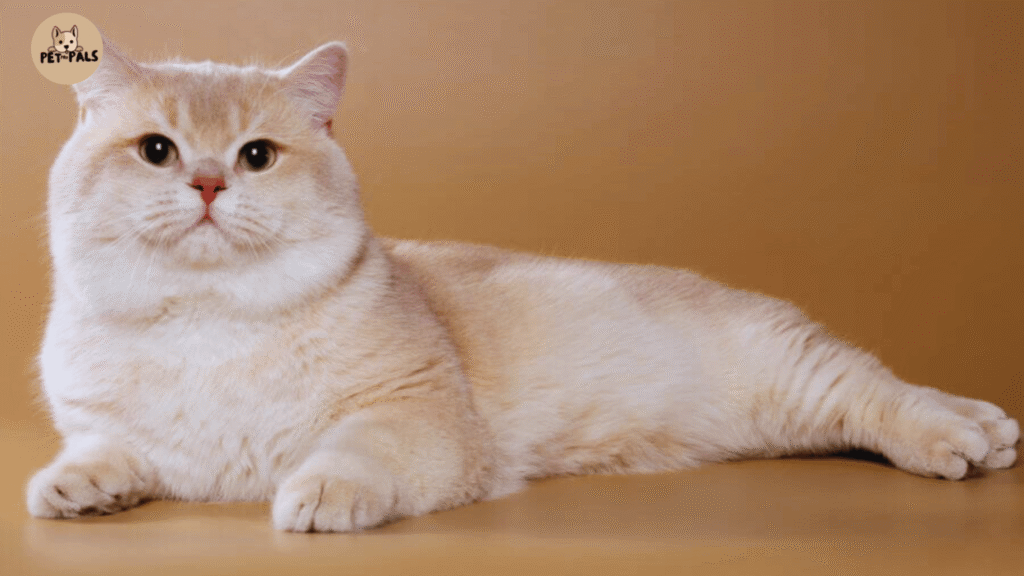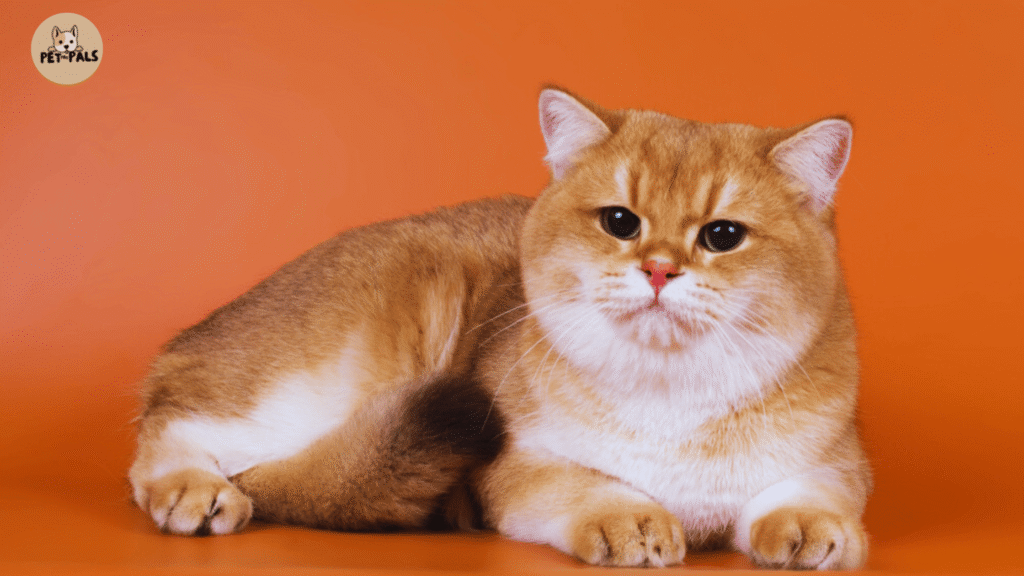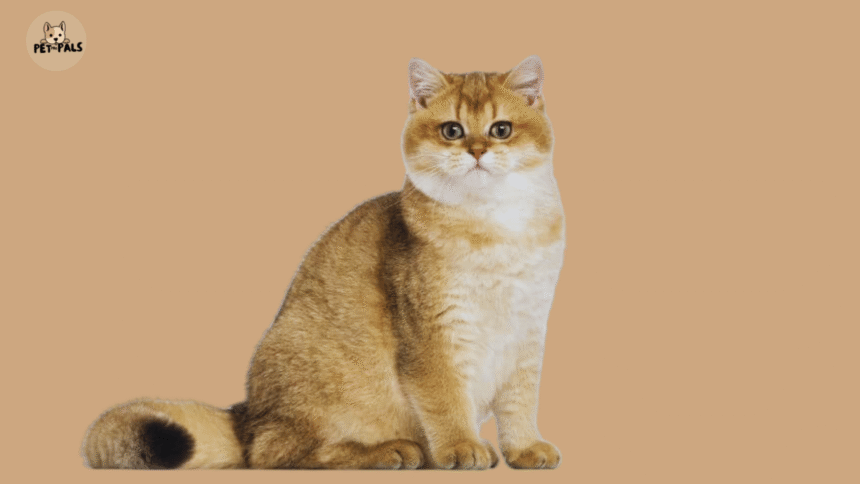Chubby cheeks, plush fur, and a calm, royal attitude, the British Shorthair cat combines cuteness and class. Whether you’re a first-time cat parent or a seasoned feline lover, it’s easy to fall for this iconic breed. No wonder they’ve become one of the most popular cat choices around the globe!
Did you know? The British Shorthair is one of the oldest & Largest Domestic cat breeds in the world, believed to have descended from cats brought to Britain by the Romans.
But before you bring one home, knowing what you’re signing up for is important. In this complete guide, we’ll walk you through everything you need to know about British Shorthairs, from how much they cost, how to care for them, and their unique personality traits, to the biggest pros and cons of having one as your furry companion.
What Makes the British Shorthair Cat Special?

The British Shorthair Cat is one of the oldest and most distinguished cat breeds. Its roots trace back to ancient Rome, where Roman invaders brought cats to Britain to control pests.
Over time, these cats bred with local felines, evolving into the robust, thick-coated breed we know today. After nearly going extinct during World War I and II, careful breeding helped restore their population, and they’ve been beloved ever since.
Appearance
British Shorthairs are instantly recognizable for their stocky build, broad chest, and thick legs. They have large, round faces with full cheeks, giving them an endearing teddy bear-like look. Their dense, plush coat comes in a variety of colors, but the classic “British Blue” with copper-orange eyes is the most iconic.
Temperament
These cats are calm, independent, and incredibly loyal. Unlike some other breeds, British Shorthairs enjoy being near you without constantly demanding attention. They’re affectionate but not clingy, making them a perfect match for people who want a companionable yet low-maintenance pet.
How Much Does a British Shorthair Cat Cost?
| Type | Estimated Cost |
|---|---|
| Pet-quality kitten | $800 – $1,500 |
| Show-quality kitten | $2,000+ |
The cost of a British Shorthair cat can vary widely depending on the quality and purpose of the cat. A pet-quality kitten typically ranges from $800 to $1,500, while a show-quality or rare-colored British Shorthair can cost $2,000 or more. Prices may also increase if the cat comes from champion bloodlines or is sold with breeding rights.
Factors That Affect Cost
| Factor | Impact on Price |
|---|---|
| Pedigree | Higher for certified lineage |
| Breeder | Reputable = higher cost |
| Location | Varies by region |
| Coat color | Rare colors cost more |
One-Time and Yearly Expenses
| Expense Type | Cost Estimate |
|---|---|
| Spay/neuter | $100 – $300 |
| Vaccinations | $75 – $200 |
| Starter supplies | $100 – $250 |
| Food (per year) | $300 – $600 |
| Vet care (yearly) | $200 – $500 |
| Grooming (yearly) | $50 – $150 |
| Pet insurance (opt) | $200 – $400 |
Investing in a British Shorthair Cat is not just about the purchase price, but also ensuring a healthy, happy life for your feline friend.
British Shorthair Personality Traits
British Shorthairs are excellent family pets. Their calm and gentle nature makes them great companions for children. They tolerate handling well and are patient, but they also appreciate respectful boundaries, making them ideal for families who want a friendly, easygoing cat
Independence Level
British Shorthairs are moderately independent. They enjoy spending time near their humans but don’t demand constant attention. This balance makes them perfect for people who want a loving pet without the need for nonstop interaction.
Intelligence and Behavior
These cats are intelligent and curious. They learn routines quickly and enjoy interactive toys and games that challenge their minds. British Shorthairs tend to be calm and well-mannered, rarely showing aggressive or overly playful behavior, which adds to their reputation as dignified companions.
Pros and Cons of Owning a British Shorthair Cat

Pros: Quiet, low-maintenance grooming, good for working owners, calm and loyal, great with families and kids.
British Shorthairs are known for their quiet and calm nature, making them perfect for homes that value peace and relaxation. Their dense, plush coat requires only minimal grooming compared to long-haired breeds, so they are relatively low-maintenance.
Because they aren’t overly demanding of attention, they suit working owners who may be away during the day. They are also very loyal and form strong bonds with their families, including children, thanks to their gentle and patient temperament.
Cons: Not typical lap cats, prone to obesity without proper diet and exercise, less playful and energetic compared to other breeds, can be a bit reserved.
While affectionate, British Shorthairs are not typical lap cats and usually prefer to show love on their own terms, which might disappoint those looking for a constant cuddle buddy. They tend to gain weight easily if not given a balanced diet and regular exercise, so obesity can be a health concern.
Compared to more active breeds, they are less playful and energetic, which might make them less suitable for owners wanting a highly interactive pet. Additionally, their reserved personality means they may take time to warm up to strangers or new environments.
Common Health Issues & Lifespan
British Shorthairs are known for their longevity, typically living between 12 to 20 years with proper care. Their robust genetics and generally healthy constitution contribute to their long, happy lives.
Common Health Conditions
Like many purebred cats, British Shorthairs can be prone to certain health issues. One notable condition is Polycystic Kidney Disease (PKD), a genetic disorder that causes cysts in the kidneys and can lead to kidney failure if untreated.
Another common concern is obesity, due to their laid-back nature and love for food. Maintaining a balanced diet and encouraging regular exercise is crucial to prevent weight-related problems like diabetes and joint issues.
Vet Check and Care Tips
Regular veterinary check-ups are essential to catch any health issues early. Annual or bi-annual visits should include kidney function tests, weight monitoring, and dental check-ups. Keeping your British Shorthair Cat at a healthy weight through portion control and interactive play is vital. Also, regular grooming helps spot skin problems early and reduces shedding around the home.
Do British Shorthairs Like to Be Cuddled or Picked Up?
British Shorthairs are affectionate cats, but their style of showing love is a bit different from more clingy breeds. They tend to enjoy being close to you, sitting quietly beside you or nearby, rather than curling up directly on your lap. This “next to you” affection suits their calm and independent nature perfectly.
When it comes to being picked up, British Shorthairs usually tolerate it but don’t always love it. They prefer to have control over when and how they interact. Sudden or frequent picking up can make them uncomfortable, so it’s best to let them approach you and choose moments to be held.
In short, they’re loyal companions who enjoy gentle, calm affection but value their personal space, making them ideal pets for those who want a loving but respectful feline friend.
Can You Leave British Shorthairs Alone?

British Shorthairs are known for their independent and easygoing nature, which makes them fairly well-suited to being left alone during the day. They can comfortably adapt to a daily routine where their owners are out for work or errands, as long as they have food, water, and a cozy spot to relax.
That said, while they aren’t overly needy, British Shorthairs do enjoy companionship and can get lonely if left alone for long stretches regularly. Without interaction, they may become bored or develop mild behavioral issues, especially if they’re young or very social.
Tips if You Work Full-Time
- Provide plenty of toys and scratching posts to keep them mentally stimulated.
- Consider interactive feeders or puzzle toys that challenge their minds.
- Set up comfortable resting spots near windows so they can watch outside activity.
- If possible, arrange for a pet sitter or a trusted friend to check in during long workdays.
- Spend quality playtime with your cat when you’re home to strengthen your bond.
Overall, British Shorthairs handle alone time well, but like any cat, they thrive best with a balance of independence and affectionate companionship.
Training & Grooming Needs
British Shorthairs are intelligent and quick learners, but they have a calm, sometimes stubborn streak. They respond well to gentle, consistent training methods, especially when motivated by treats or play. Basic commands like using the litter box or scratching posts are usually easy to teach, but don’t expect them to be as eager as some more energetic breeds.
How Much Do They Shed?
Despite their name, British Shorthairs have a dense, plush double coat that sheds moderately throughout the year. Shedding tends to increase during seasonal changes, especially in spring and fall, but overall, their coat is relatively low-maintenance compared to long-haired breeds.
Grooming Tips to Reduce Shedding
- Regular brushing, at least 2-3 times a week, helps remove loose fur and prevents matting.
- Using a soft-bristle or rubber grooming brush can be very effective for their plush coat.
- Bathing is rarely needed, but can help during heavy shedding periods.
- Maintaining a healthy diet rich in omega fatty acids supports coat health and reduces excessive shedding.
- Keeping their environment clean and vacuumed also helps manage loose hairs around your home.
With a little routine care, British Shorthairs stay looking plush and shed much less than many other cats.
Is the British Shorthair Cat Right for You?
The British Shorthair Cat is perfect for those who want a calm, affectionate, and low-maintenance feline companion. They suit individuals or families who appreciate a loyal cat that enjoys quiet companionship without demanding constant attention. If you have a busy lifestyle but still want a pet that fits seamlessly into your home, this breed could be a great match.
Quick Decision-Making Checklist
- Looking for a cat with a calm, easygoing personality?
- Want a low-maintenance coat with minimal grooming?
- Need a pet comfortable being alone during the day?
- Prefer a cat that shows affection on their terms?
- Ready to manage their tendency toward weight gain with diet and exercise?
If most of these points sound like your ideal pet scenario, the British Shorthair could be the perfect furry friend for you.
Conclusion
British Shorthairs blend charm, elegance, and a gentle personality into one irresistible package. Their calm demeanor and moderate independence make them ideal companions for a wide range of households, from busy professionals to families with children. While they do require some attention to diet and grooming, their low-maintenance coat and easygoing nature make caring for them a pleasure rather than a chore.
By understanding their unique traits, costs, and care needs, you’ll be well-prepared to welcome a British Shorthair into your home and enjoy years of loyal companionship and quiet affection. If you’re ready for a cat that’s as regal as they are lovable, the British Shorthair Cat might just be your perfect match.
FAQ
Why is my British Shorthair cat suddenly aggressive?
British Shorthairs are generally calm, but aggression may come from pain, stress, or lack of stimulation. A vet visit and environmental changes often help.
Why don’t British Shorthairs like being picked up?
It’s their nature. They prefer ground-level affection. Forcing cuddles may stress them. Respecting their space builds better trust.
Do British Shorthairs meow a lot?
They are one of the quieter breeds. You’ll usually hear them when they’re hungry or want attention, but they’re not very vocal overall.
Are British Shorthairs okay in apartments?
Absolutely. They’re calm, low-energy, and not very destructive—perfect for small spaces.
How do you entertain a British Shorthair?
They enjoy puzzles, feather toys, and window-watching. They’re not hyperactive, but they do need mental stimulation.

